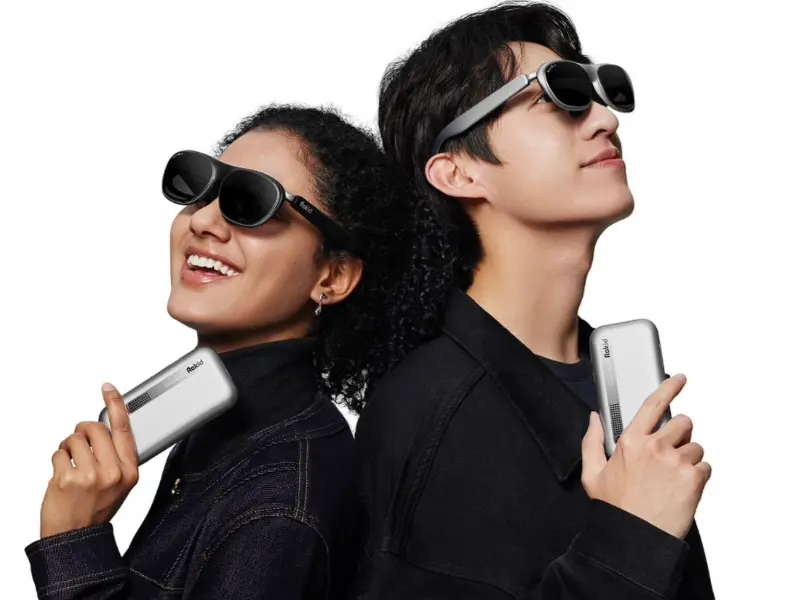- Rokid unveils the AR Lite spatial computing suite, featuring Rokid Max 2 glasses and Rokid Station 2 host unit.
- Leveraging Qualcomm’s Snapdragon Platform, the suite delivers improved graphics rendering and AI computing.
- Strategic collaborations with Hainan Airlines, Loong Air, Alibaba Cloud, Yinxiang Biji, and Qualcomm Technologies aim to expand the presence of smart glasses in various industries.
Rokid, a Chinese technology company specializing in the research and product development of mixed reality and artificial intelligence, has launched its latest product offering: the AR Lite spatial computing suite. This solution combines the Rokid Max 2 glasses with the Rokid Station 2 host unit, incorporating the exclusive YodaOS-Master spatial operating system.
Wearable design innovations
The AR Lite device features a lightweight and user-friendly design, weighing just 75 grams, and boasts a compact aluminium alloy frame, enhancing comfort and encouraging widespread adoption.
Leveraging Station 2 technology and the Snapdragon Platform, Rokid ensures seamless computing performance, catering to the demands of extended usage scenarios.
Also read: Meta to integrate AI into Ray-Ban smart glasses
Enhanced usability features
With a 5000mAh battery and fast charging support, the AR Lite device offers extended usage times, ideal for long workflows and entertainment streaming.
Design enhancements such as intelligent interpupillary distance adjustment, non-destructive diopter adjustment, and ultra-light air nose pads optimise comfort during prolonged use, ensuring an immersive and ergonomic experience.
Also read: Meta Unveils Exciting New AI Features: From Smart Glasses to AI-Generated Stickers
Innovative human-machine interaction
Rokid introduces intuitive touch controls on the Rokid Station 2, eliminating physical buttons and enabling seamless three-dimensional content interaction with the precision of its spatial ray pointer.
New quality of life software improvements, including Multi Screen Mode, Motion Mode, and Spatial Screen Casting, enhance productivity and connectivity, catering to emerging use cases in immersive workflows.

